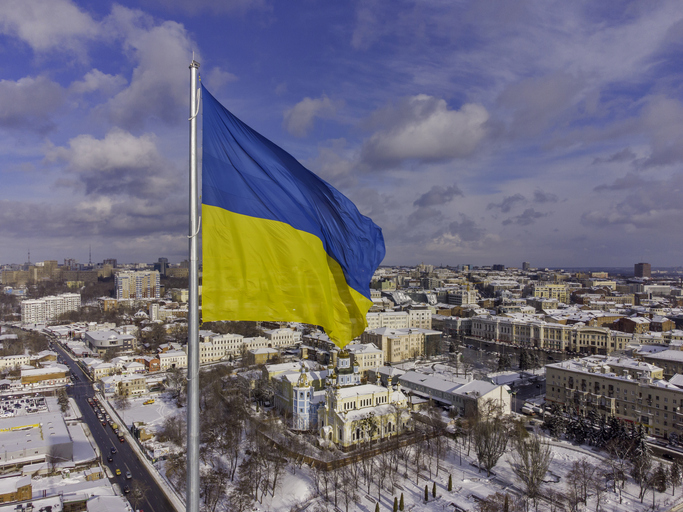
As the Russian army proceeds with its invasion of Ukraine, our natural inclination to defend the weaker, younger, more democratic nation against its aggressive, giant, authoritarian neighbor is suppressed by the fear that any such action could result in the Armageddon of nuclear war. However, that doesn’t mean that we are powerless in the face of such aggression; we still have economic tools, like sanctions, and probably more productive—even when dealing with an authoritarian regime—is our ability to stimulate public unrest through effective communication. As we’ve seen in Iraq, Syria, and Afghanistan, conflicts in the 21st century are not likely to be won by brute military force, but by winning the hearts and minds of people.
President Putin may have delusionally expected his armies to be welcomed by the Ukrainian masses, but it now must be clear, even to him, that they will fight tooth and nail against any occupation, making the war ultimately unwinnable. At the same time, it’s emerging that sentiment in Russia is firmly against the invasion, especially among the growing, younger middle classes, who are well traveled, speak English (and often another foreign language), and may offer the only way out of this situation without enormous casualties.
The breakup of the Soviet Union was largely due to its leader Mikhail Gorbachev’s policy of glasnost, which can be roughly translated as political openness, and which should be resurrected now to help ensure that the Russian people are fully aware of their Ukrainian cousins’ resistance to the military onslaught and understand that for the people of Russia, the attack will bring no benefits. In this way, internal support for regime change can grow to the point where it cannot be resisted.
Our best strategy at the moment is to encourage all communication in the hope of better understanding. Last year, Putin clamped down on Russian media, closing down more than ten media outlets and charging dozens of journalists critical of the government with “acting as foreign agents,” but there was little international outcry. Some independent media organizations still exist in Russia (see World, p. 14), but there have been calls for international media giants, like Meta and Google, to block misinformation from Russian state-run sources. And there could be a backlash if the platforms are blocked. “It’s the most important place for public debate about what’s going on,” Andrei Soldatov, a Russian journalist and censorship expert, recently told the New York Times. “Nobody would take it as a good sign if Facebook blocked access for Russian citizens.” At the same time, the European Union is blocking Russian state broadcasters, like RT.
The last thing we should be doing is isolating the Russian people, yet we have California Democrat Rep. Eric Swalwell calling for “kicking every Russian student out of the United States.” In 2021, there were about 5,000 Russian students at universities or colleges of further education, as well as many more in high schools and other private schools. Many may be the offspring of powerful oligarchs aligned to Putin, but their experience in the US may be crucial in halting future Russian aggression.The Russian people shouldn’t be punished for the actions of their government. Relationships between them and the rest of the world need to be nurtured through mutual education and the sharing of cultures, so that the very concept of going to war over territorial disputes becomes obsolete.





